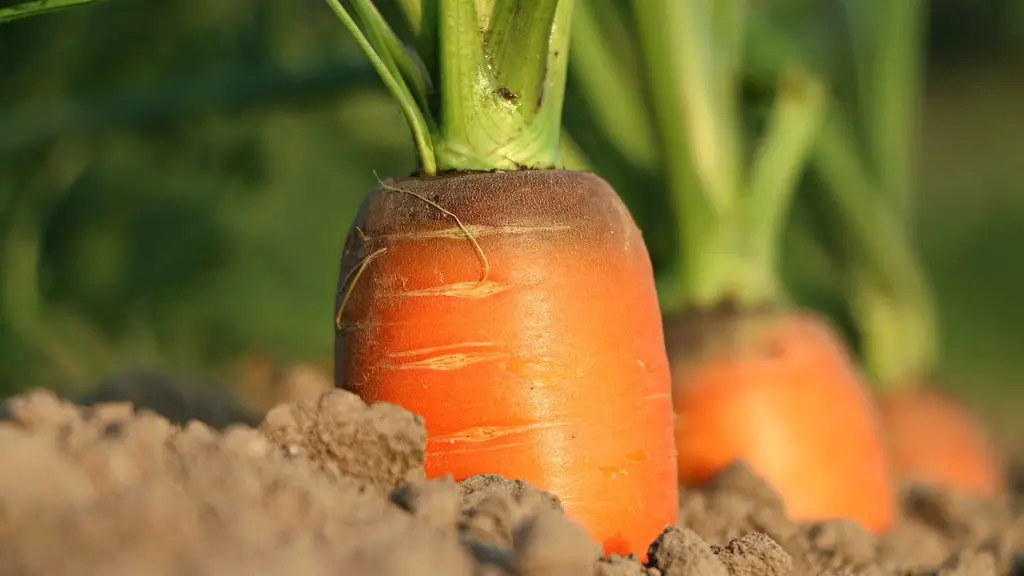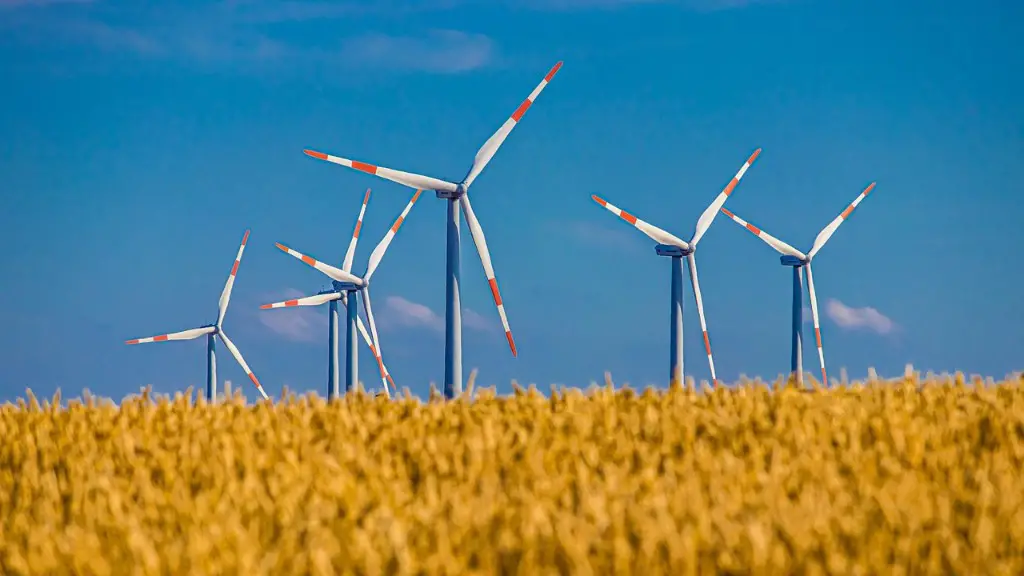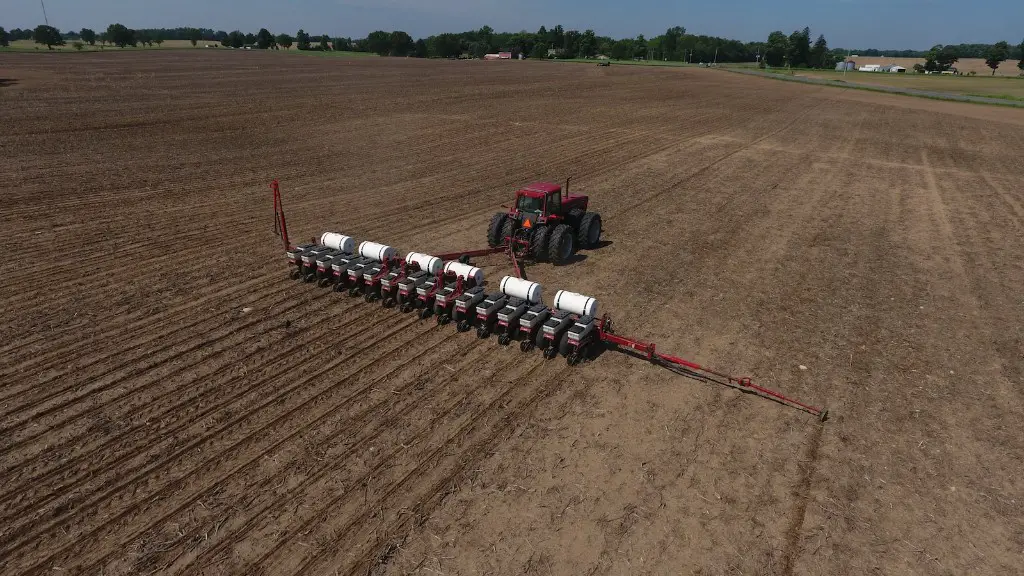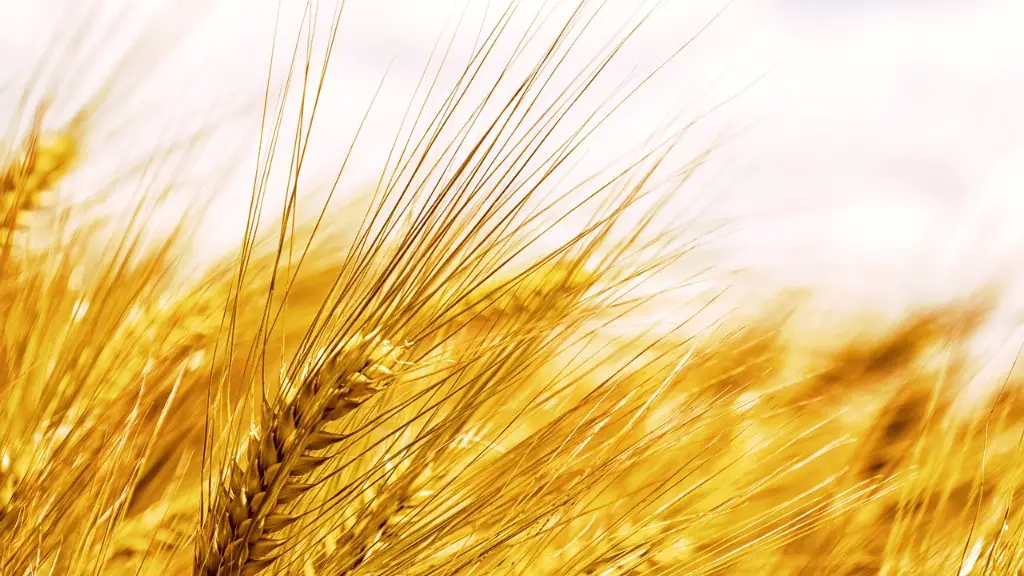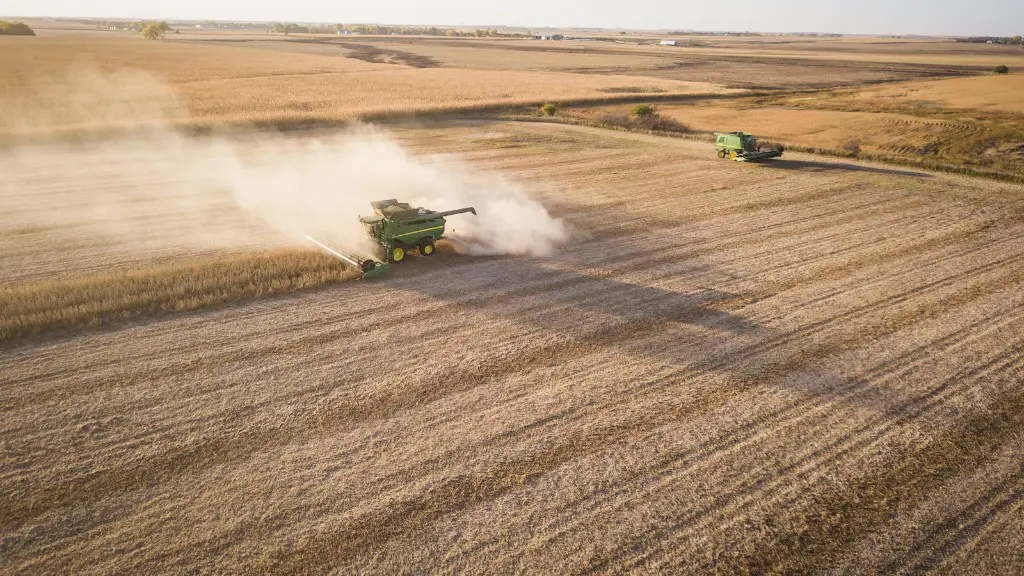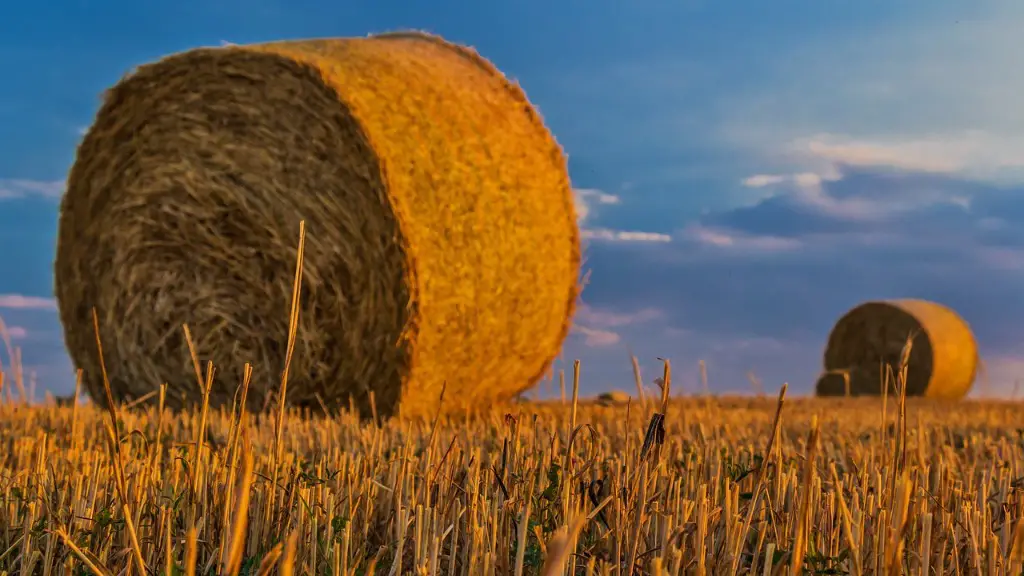There isn’t a single answer to this question as every woman’s experience in agriculture is unique. For some women, being a part of the agricultural industry means working alongside their families and being able to continue the legacy of their ancestors. For others, it’s about being a part of a community of supportive women who are all working towards a common goal. Regardless of what being a woman in agriculture means to each individual, there’s no doubt that it’s a rewarding and enriching experience.
There isn’t a single answer to this question as every woman’s experience in agriculture is unique. However, some common themes among women in agriculture include a love for the land and animals, a strong work ethic, and a passion for producing wholesome food. For many women, being a part of the agriculture industry also means being part of a close-knit community that supports one another.
What is women’s role in the agriculture?
Agricultural workers are those who work in the agricultural sector. Their activities typically include producing agricultural crops, tending animals, processing and preparing food, working for wages in agricultural or other rural enterprises, collecting fuel and water, engaging in trade and marketing, caring for family members and maintaining their homes. In some cases, agricultural workers may also be involved in forestry, fishing, and hunting.
Social factors: Women may face social barriers, such as discrimination and lack of social support, which can limit their ability to participate in agriculture.
Cultural factors: Women may be expected to perform certain roles in agriculture, such as caretaking and food preparation, which can limit their ability to participate in other aspects of agriculture, such as decision-making and leadership.
Political factors: Women may have less political power than men, which can limit their ability to influence agricultural policy and access resources.
All of these factors can limit women’s ability to participate in agriculture and contribute to the development of their communities. It is important to address these factors in order to ensure that women are able to fully participate in agriculture.
Why is gender important in agriculture
It is estimated that women make up 43% of the agricultural labor force globally. Women are disadvantaged in many ways when it comes to agriculture, including owning fewer productive assets (land, livestock) and having less control over productive inputs (credit, etc.). This results in women having less control over their own livelihoods and being more vulnerable to poverty and hunger.
The evidence from the literature on women’s roles in agriculture shows that gender inequality slows development. Policy-makers and international organizations cannot ignore the interests of women agriculturalists if they are to have an impact on household and national food security.
Is feminization of agriculture good?
It is well established that women are the primary caretakers of the household and have a direct impact on the health and nutrition of the family. Studies have shown that there is a direct correlation between women’s control over agricultural resources as a primary producer and the socio-economic characteristics of their household. This means that if women have greater control over agricultural resources, they are more likely to have a positive impact on the health and nutrition of the family. This is due to the fact that women are more likely to reinvest their earnings back into the household, which leads to improved living standards for the family. Therefore, it is evident that empowering women through education and training in agriculture can have a positive ripple effect on the health and nutrition of the entire family.
There is a growing trend among women farmers in the global North to adopt organic and sustainable agriculture practices that prioritize community health and well-being over increasing crop yields. However, male-owned, large-scale agriculture still largely determines agricultural research, farming environments, and access to social resources. This trend is likely to continue unless women farmers are able to gain greater control over these areas.
What are gender challenges in agriculture?
Gender-specific obstacles faced by female farmers significantly disadvantage them before they even plow a field or sow a seed. Arguably, the biggest roadblock is land rights. Female farmers lack access to land, financing, markets, agricultural training and education, suitable working conditions, and equal treatment, which puts them at a significant disadvantage. This issue must be addressed in order to allow female farmers to thrive and reach their potential.
There is no doubt that making agriculture attractive would require providing training for youths. This demographic misses out on the opportunities available in agriculture simply because they lack skills in agriculture. Agriculture and entrepreneurship training should be a requirement in secondary and tertiary education. By providing this training, we can open up the doors of opportunity for youths and help them develop the skills they need to succeed in the agricultural sector.
What are the advantages of feminisation of agriculture
There is an increasing trend of women taking on farming roles and becoming the primary decision-makers and income-earners for their families. This is often referred to as the “feminization of farming.”
There are several potential benefits of this trend. First, it can support women’s empowerment and provide them with more autonomy. Second, it can help to close the gender gap in agriculture, as women are often at a disadvantage when it comes to access to land, credit, and other resources.
Third, the feminization of farming can also have positive impacts on food security and nutrition, as women are often more likely to invest income back into the household, including on food and healthcare.
Overall, the feminization of farming is a trend that is worth paying attention to, as it has the potential to bring about positive change for both women and communities as a whole.
It is important to note that the feminization of agriculture is not always a negative trend. In many cases, it can lead to increased food security as women are often more likely to invest in their families and communities. However, there are some myths about feminization of agriculture that persist in the literature. One such myth is that it leads to a decrease in production. This is not always the case, as women are often just as capable as men when it comes to agriculture. Another myth is that it only affects developing countries. However, the feminization of agriculture is a global phenomenon that is affecting both developed and developing countries.
What do we call a female farmer?
There is a common misconception that farmers are male and farmerettes are female. However, this is not the case. Both farmers and farmerettes can be either male or female.
The Industrial Revolution caused a dramatic increase in inequality between genders. With the introduction of new technologies, men were able to do the majority of the work in the field, while women were relegated to child-rearing and household work. This increased inequality has been shown to be a direct result of the increased food surpluses that came with the Industrial Revolution.
Why is gender important for agriculture and rural development
In agricultural societies, it is important to have gender-specific data on access to and control over productive resources, including individual’s labor and access to family labor. This data is important in order to ensure food security for the population. Having data that is specific to each gender allows for a more accurate understanding of the situation and can help to create targeted solutions that address the needs of both men and women.
Gender inequities in agriculture may stem from structural barriers that block women’s access to land ownership and other key services. In many cultures around the world, land is passed down from father to son, leaving women at a disadvantage when it comes to owning and operating a farm. Additionally, women often lack the same level of access to education and training as men, which can further limit their ability to be successful farmers. While more research is needed to fully understand the root causes of gender inequities in agriculture, it is clear that these disparities exist and can have a significant impact on the lives of women farmers.
Why do you love agriculture?
Agriculture is a great way to learn about life. You learn early on about the unjustness of nature, the pay off of perseverance, and the value of honesty. You also learn the lasting impact of friendships formed through the lifestyle. Agriculture is a great way to learn life lessons early on.
Agriculture is a critical sector in many developing countries and is a key factor in reducing poverty. In fact, agriculture is more effective in reducing poverty than any other sector.
Agricultural growth is more effective at reducing poverty than growth in other sectors because:
-It directly increases incomes and consumption for the poor, who are largely dependent on agriculture for their livelihoods
-It leads to spillover effects in the form of increased employment and incomes in rural areas
-It creates linkages with other sectors of the economy, including agro-processing, leading to further economic growth and poverty reduction.
The world is increasingly counting on agriculture to produce more nutritious food for its booming population and improve the livelihoods of people. This is because agriculture matters to the future development of the economy and the world.
Final Words
There is no one answer to this question as every woman’s experience in agriculture is unique. However, some common themes that could be discussed include the challenges and rewards of working in a male-dominated industry, the importance of obeying health and safety guidelines, and the satisfaction that comes from producing food for the community.
There is no one answer to this question, as each woman’s experience will be unique. However, some common themes may emerge. These could include a deep connection to the land and the satisfaction that comes from working with nature, a sense of pride in carrying on a family tradition or being part of a close-knit community, and a feeling of empowerment from being able to provide for oneself and others. Whatever the individual circumstances, it is clear that being a woman in agriculture is a meaningful and rewarding experience.
